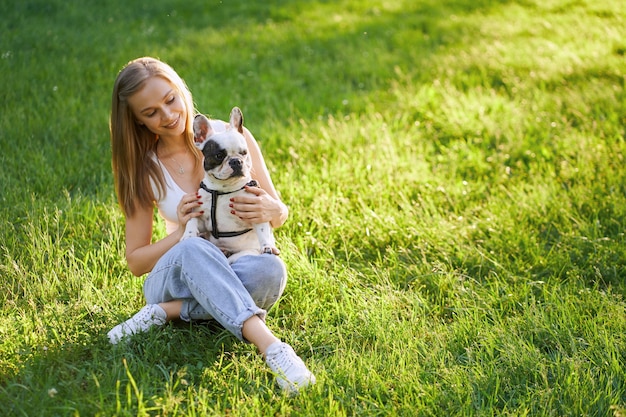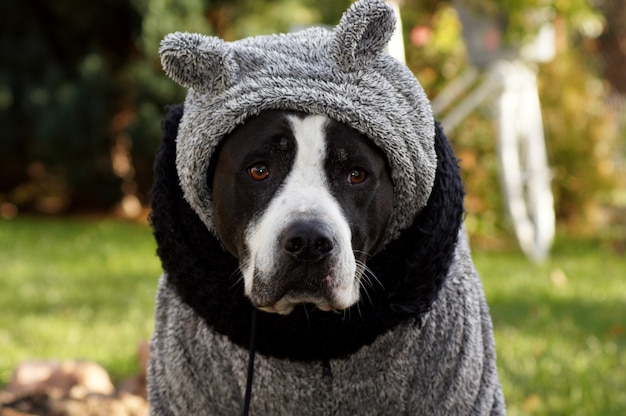Transitioning Your Pet’s Routine for Fall in McKinney, TX


Transitioning Your Pet’s Routine for Fall in McKinney, TX
As the summer heat gives way to milder, breezy days in McKinney, TX, fall brings a welcome change for both people and pets. While the shift in seasons often means more comfortable walks and cozy evenings, it also introduces new opportunities and challenges for pet owners. At Pet Method Animal Hospital, our veterinary team understands that each pet’s needs change as the weather cools and the days grow shorter. Adjusting your pet’s routine for fall can help prevent seasonal health concerns, maximize comfort, and keep your furry companion thriving all season long.
In this guide, we will share expert fall pet care tips tailored to the unique climate and lifestyle of McKinney and surrounding communities. You will discover how to modify your pet’s exercise, grooming, nutrition, and preventive care routines for optimal health. We will also discuss how to recognize seasonal issues, when to seek help from a vet near me, and how ongoing preventive care—such as a wellness examination—adds year-round value for your pet’s wellbeing. Whether you are a new pet owner or a seasoned caretaker, our insights will help you feel confident as you step into autumn with your pet.
Recognizing Fall-Related Concerns in Local Pets
Many pet owners notice subtle changes in their pet’s behavior and health as summer transitions to fall. Recognizing when your pet’s needs are shifting is the first step toward providing the best care during this season. In McKinney, where temperatures can fluctuate and outdoor allergens persist, pets may display signs that their routines require adjustment.
Key signals that your pet may be affected by the season include increased shedding, a change in coat thickness, or dry, flaky skin. Some pets show less interest in outdoor activities as daylight hours decrease, while others may become more energetic in the cooler weather. Watch for behaviors such as scratching, licking, or chewing at the skin, as these can indicate seasonal allergies or dry skin. Dogs and cats may also experience changes in appetite or weight as their activity levels shift. Additionally, pets with arthritis or joint discomfort might show more stiffness in the cooler mornings, making it important to monitor mobility and comfort closely.
While these changes are often normal, it is important to distinguish between typical seasonal adjustments and signs that warrant veterinary attention. Sudden or severe changes in behavior, persistent lethargy, ongoing gastrointestinal upset, or any signs of respiratory difficulty should always prompt a call to your veterinarian. If you are unsure whether your pet’s symptoms are seasonal or something more serious, our veterinary professionals at Pet Method Animal Hospital are here to help.
Understanding the Impact of Fall on Seasonal Pet Routines in McKinney
The arrival of fall in North Texas brings unique environmental shifts that influence your pet’s daily life. Cooler temperatures can make outdoor activities more enjoyable, but they also introduce new challenges such as increased allergens, fluctuating humidity, and the start of holiday festivities that may disrupt routines. Understanding how these changes influence your pet’s health allows you to adapt their care effectively.
In McKinney and nearby communities, seasonal allergens such as ragweed and mold spores can persist well into autumn. Pets may develop itchy skin, watery eyes, or sneezing as these allergens circulate in the air. The drop in humidity can lead to dry noses and cracked paw pads, especially in pets that spend time outdoors. Additionally, as the days grow shorter, pets may naturally adjust their sleep patterns or activity levels. Dogs with thick coats often begin to shed their summer fur and grow a denser undercoat to prepare for the cooler months, while short-haired breeds may benefit from added warmth at night.
The fall season also brings increased opportunities for outdoor adventures, from trips to local parks to family gatherings in the backyard. While these activities are enriching, they also expose pets to new risks such as ticks, fleas, and even seasonal toxins like mushrooms or certain holiday foods. Recognizing these factors helps you tailor your pet’s routine for a safe, healthy autumn.
Managing Your Pet’s Fall Routine: Professional Guidance and Home Strategies
Adapting your pet’s routine for fall in McKinney involves a blend of professional veterinary support and simple changes at home. Our veterinary team recommends several steps to ensure your pet remains healthy and happy as the seasons change, all while emphasizing comprehensive care through regular wellness examinations and proactive communication.
Exercise and Outdoor Activities
With cooler weather, many pets enjoy longer walks and more energetic play sessions. To make the most of the season, gradually increase your pet’s exercise as temperatures drop, watching for signs of fatigue or overexertion. Early mornings and evenings can be especially brisk, so consider adjusting walk times to when temperatures are mildest. If your pet has been less active during the summer heat, start with shorter walks and slowly build endurance to prevent injury.
Always inspect your pet for ticks or debris after outdoor adventures, as fall can bring increased parasite activity in grassy or wooded areas. If you have questions about parasite risks or need ongoing protection, our parasite prevention services offer year-round support for pets in McKinney and surrounding neighborhoods.
Grooming and Skin Care
Seasonal shedding is common in the fall as pets prepare their coats for winter. Regular brushing removes loose fur, reduces matting, and stimulates the skin’s natural oils. For pets with sensitive skin or those prone to dryness, consider moisturizing shampoos and avoid excessive bathing, which can strip essential oils. Watch for signs of persistent itching, redness, or hair loss, as these may indicate allergies or skin infections that require veterinary attention.
Nutrition and Weight Management
As routines change and outdoor activity increases, your pet’s nutritional needs may shift as well. Some pets require more calories during active months, while others may benefit from a diet adjustment to maintain a healthy weight as their energy use fluctuates. Our nutritional assessment services can help you create a seasonal feeding plan tailored to your pet’s specific needs, taking into account breed, age, activity level, and any medical conditions.
Preventive Health and Veterinary Visits
Fall is the perfect time to schedule a comprehensive pet exam in McKinney to catch up on vaccines, address emerging health issues, and discuss any changes you have noticed in your pet. Regular wellness visits are the cornerstone of preventive care and can identify early signs of seasonal allergies, dental disease, or chronic conditions that may flare up as the weather cools. Our veterinary professionals can also check for parasites, update preventive medications, and provide guidance on keeping your pet comfortable as the seasons shift.
Fall Prevention: What Pet Owners in McKinney Can Do at Home
Taking proactive steps at home helps minimize the impact of fall-related health concerns on your pet. Some practical strategies include maintaining a consistent daily schedule for feeding, exercise, and playtime, which helps ease the transition into shorter days. Providing a warm, draft-free sleeping area ensures comfort during cooler nights, while keeping water bowls full and clean encourages hydration as humidity drops.
When spending time outdoors, supervise pets closely to prevent exposure to mushrooms, acorns, or unfamiliar plants, all of which can be toxic if ingested. Wipe your pet’s paws and belly after walks to remove allergens, pesticides, or moisture that may irritate the skin. For pets with arthritis or mobility issues, consider using orthopedic bedding or ramps to reduce joint strain, and keep an eye on their comfort during cold snaps.
If your pet is prone to allergies, frequent vacuuming and air filter changes can help reduce airborne allergens in your home. Regular grooming and bathing with veterinarian-recommended products further support skin health and comfort. Finally, stay alert to any behavioral changes that may indicate discomfort or illness, as early intervention is key to effective care.
When to Seek Veterinary Care: Recognizing When Help Is Needed
While most seasonal changes are manageable with a few simple adjustments, certain symptoms require prompt attention from a veterinarian near me. Warning signs to watch for are persistent coughing, labored breathing, ongoing vomiting or diarrhea, sudden limping or weakness, or any evidence of pain. Pets with chronic conditions such as arthritis, allergies, or heart disease may need medication adjustments or additional monitoring during the fall months.
If your pet experiences a sudden decline in energy, stops eating or drinking, or develops new or worsening skin lesions, contact our veterinary professionals immediately. Scheduling a wellness examination provides peace of mind and allows us to address any emerging health issues before they become more serious. For urgent concerns, we offer same-day appointments and prioritize the comfort and wellbeing of your pet.
Remember that timely intervention can make a significant difference in your pet’s recovery and long-term health. Our veterinary team at Pet Method Animal Hospital is always available to answer questions, provide guidance, and deliver the highest standard of care for pets throughout McKinney and nearby communities.
Supporting Your Pet’s Health All Season Long: Why Fall Routines Matter
Transitioning your pet’s routine for fall in McKinney, TX empowers you to prevent seasonal problems and support lifelong wellness. By recognizing early signs of seasonal changes, understanding the impact of local climate, and working with a trusted veterinary team, you set your pet up for a healthy, happy autumn. Regular wellness examinations, tailored nutritional support, and ongoing parasite prevention are just a few of the services we offer to enhance your pet’s quality of life.
If you have questions about fall pet care tips, want to schedule a comprehensive pet exam in McKinney, or simply need advice on adjusting your pet’s seasonal routines, our veterinarians are here for you. Schedule an appointment with our compassionate team today by calling (469) 581-8609 or visiting us at 260 N Coit Rd, Suite 130, McKinney, TX, 75071. Experience the difference of partnering with a quality vet near me who truly cares for your pet’s wellbeing.
For more information on optimizing your pet’s diet during seasonal transitions, explore our nutritional assessment services. At Pet Method Animal Hospital, we are honored to serve McKinney and surrounding communities with exceptional veterinary services and personalized care every step of the way.
The information in this blog is intended for educational purposes only and does not replace professional veterinary consultation. Always consult your veterinarian for individualized medical advice.



















